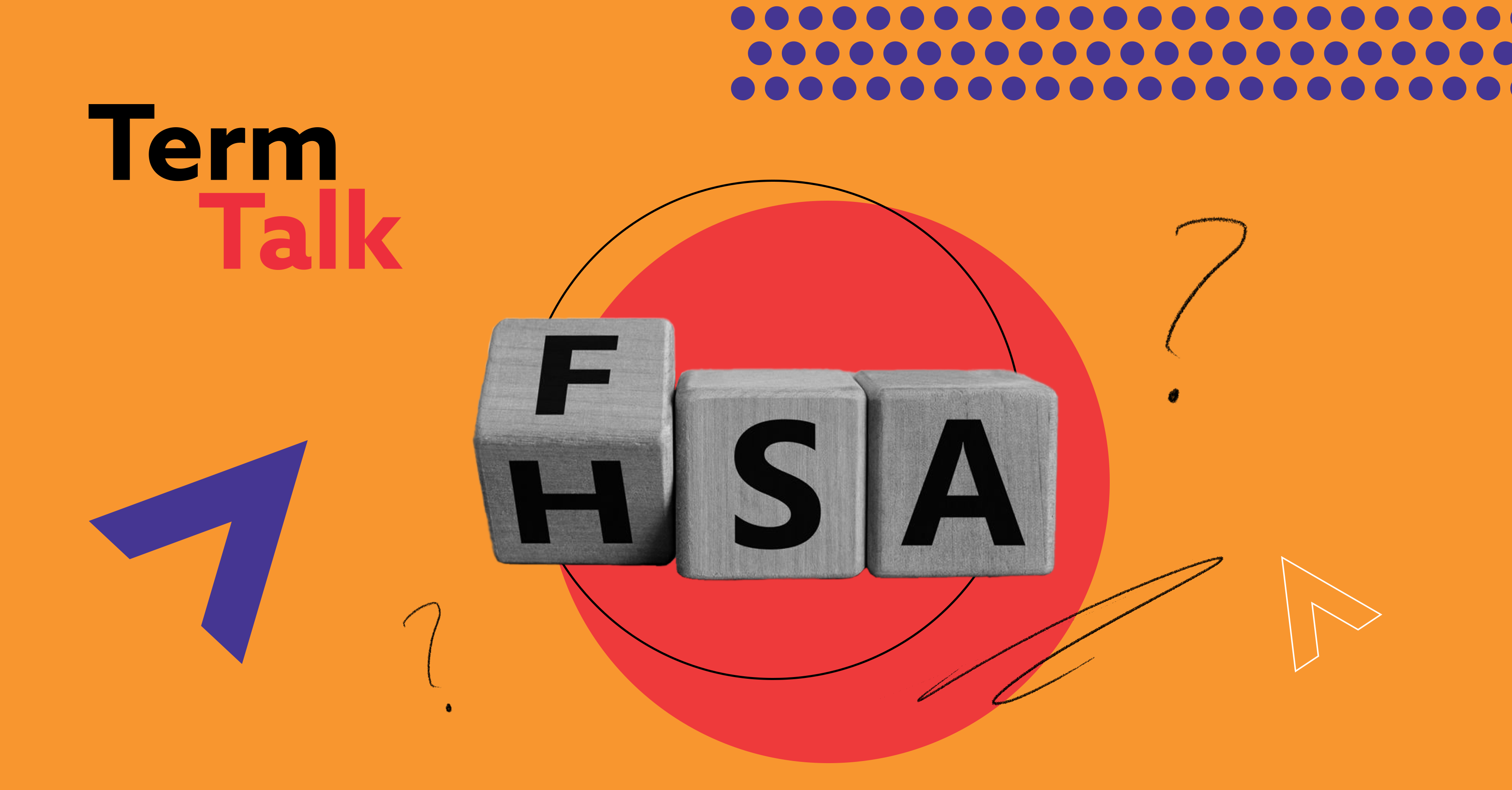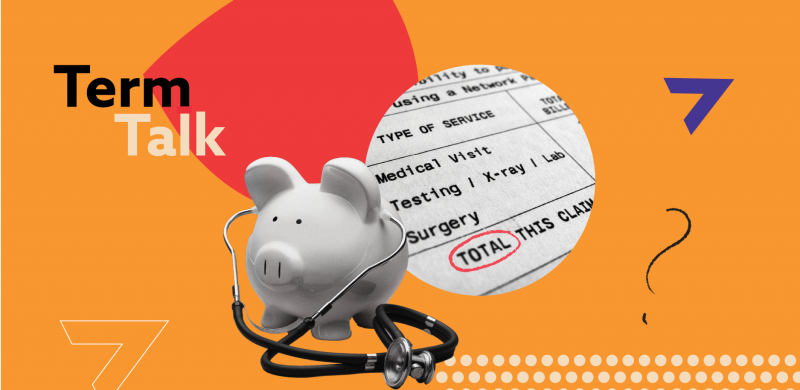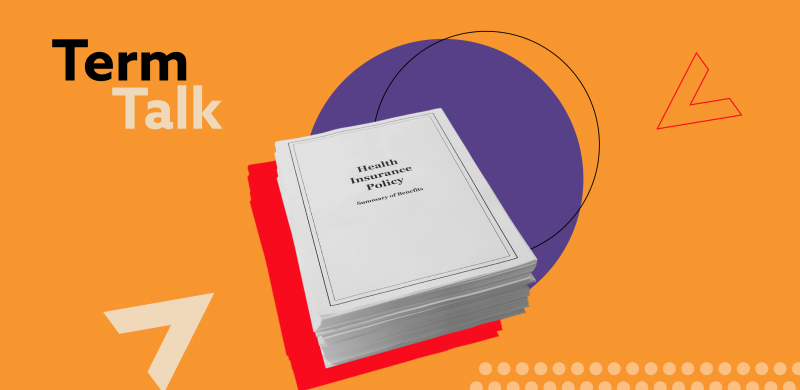
Published October 2023
Members often have questions about their health plan, from the definition of terms to how to best utilize their coverage. Our Term Talk series aims to answer commonly asked questions to help you better understand health insurance and empower you to make decisions about your coverage that best fits your needs.
A common dilemma:
My employer offers the option to sign up for a flexible savings account (FSA), but the health plan I’m enrolling in has a different option for a health savings account (HSA). Are they both the same, or is one better than the other?

The purpose of a reimbursement account
Even with the most robust insurance, health care can be expensive. Unexpected health issues can arise throughout the year and with that can come unexpected out-of-pocket costs. That’s where reimbursement accounts come in, which can help pay for health care expenses.
But what types of health reimbursement accounts are available? Flexible Spending Accounts (FSAs), Health Reimbursement Arrangements (HRAs), and Health Savings Accounts (HSAs) are all types of reimbursement accounts to help pay for your health care expenses. FSAs and HRAs are available through employer-paid plans, and HSAs are available to members with qualified (employer or individual) plans. Let’s talk more about each option:
Flexible Spending Account (FSA). A health care FSA allows members to set aside pretax money to pay for qualified medical, pharmacy, dental and vision1Members do not keep their unused FSA money, and funds may be forfeited back to their employers at the end of the plan year (or filing deadline, as determined by the employer). FSAs are generally paired with traditional health plans.
Health FSAs are available only through employers that offer them. You will be asked at open enrollment to determine how much money you want to put in your FSA, and your employer will deduct that amount in pretax dollars from your paycheck. Typically, your employer’s FSA administrator will send you a debit card that you can use to spend your funds. If you need to, you can spend your whole contribution amount on one qualified expense, or you can use it throughout the year to pay doctor’s copays and purchase prescriptions and other authorized items. You cannot take the FSA with you if you leave your employer.
Health Reimbursement Arrangement (HRA). An HRA is owned and funded by the employer and is designed to help members bridge the gap on qualified health care expenses including medical, pharmacy, dental and vision. Common eligible expenses include deductibles, coinsurance and copays.2
Your employer will decide which eligible out-of-pocket costs (e.g., deductible expenses) the HRA pays for. You may receive a check that you can use to pay a provider’s bill, or the HRA administrator may pay the provider directly. Typically, you cannot take HRA funds with you if you leave your employer. Unused funds may rollover or expire at the end of the plan year, as determined by your employer.
Health Savings Account (HSA). An HSA lets you use pretax money to pay for qualified medical expenses.3 HSAs require an HSA-qualified health plan (either through your employer or if you bought a qualified high-deductible health plan on your own) in order to contribute. You can invest HSA dollars and grow tax-free earnings. If you leave your employer, the HSA is yours to keep.
What should I contribute to my reimbursement account?
- FSAs: Contribute only what you think you will spend on qualified expenses for one year, because any leftover amount in your health FSA will be forfeited at the start of the new year. You can decide how much to put in for the following year during open enrollment. (Different employers have different open enrollment periods, so check with your human resources or benefits department to find out when yours is scheduled.)
- HRAs: HRAs are not paid for by you (the member); instead, your employer will work with an HRA administrator and decide how much money to contribute. Your employer will also decide whether any unused funds can carry over from one year to the next, and if so, how much.
- HSAs: Funds never expire, even if you change health plans or employers or retire. You can contribute to an HSA through pretax payroll deductions or with other personal funds. Your employer may choose to contribute once a year, as well. If you contribute to an HSA through payroll deductions, keep in mind that you can spend only up to your account balance at any given time. If you have a large, qualified expense early in the year, you may want to pay the provider some other way and then pay yourself back once you have enough funds in your HSA.
FSA and HSA calculators can also be a helpful tool when determining how much to contribute to each account.
How should I use my reimbursement account funds?
While it’s always best to confirm if a particular item is eligible to be purchased using health reimbursement or account funds, there are plenty of options—some may even be surprising. Travel expenses for medical care, virtual therapy sessions and baby monitors, for example, can all be covered by reimbursement account funds.
The best health reimbursement account is the one that works for you and your health needs. And when determining if a reimbursement account is right for you, there are a lot of factors to consider including how often you have health expenses, how long you might be staying at a particular job, tax savings and more.
Disclosures:
1 FSAs are never taxed at a federal income tax level when used appropriately for qualified medical expenses. Also, most states recognize FSA funds as tax deductible, with very few exceptions. Please consult a tax advisor regarding your state’s specific rules.
2 In addition to restrictions imposed by law, your employer may limit what expenses are eligible for reimbursements. It is your responsibility to ensure eligibility requirements are met, as well as to ascertain that you are eligible for the plan and expenses submitted.
3 HSAs are never taxed at a federal income tax level when used appropriately for qualified medical expenses. Also, most states recognize HSA funds as tax deductible, with very few exceptions. Please consult a tax advisor regarding your state’s specific rules.
To confirm eligibility for any programs or services mentioned in this article as it relates to your specific health plan, please reach out to your account executive or HR benefits team. You may also speak to our member services team at (888)-333-4742 or by sending a secure email. And for plan details and other member resources, log in to the member portal.


